- Preview
- Stages 1-9
- Stages 10-15
- Stages 16-21
There was plenty of action in the final week of the 2024 Tour de France – but action alone doesn’t hit too hard when there is so little sense of jeopardy. As such, Tadej Pogacar’s dominant victory was a lot more impressive than it was entertaining.
Foreshadowing a damp squib
The final week began with a third sprint victory for last year’s green jersey winner, Jasper Philipsen, followed by a win from the breakaway for Olympic road race gold medallist, Richard Carapaz, on his way to winning the mountains classification.
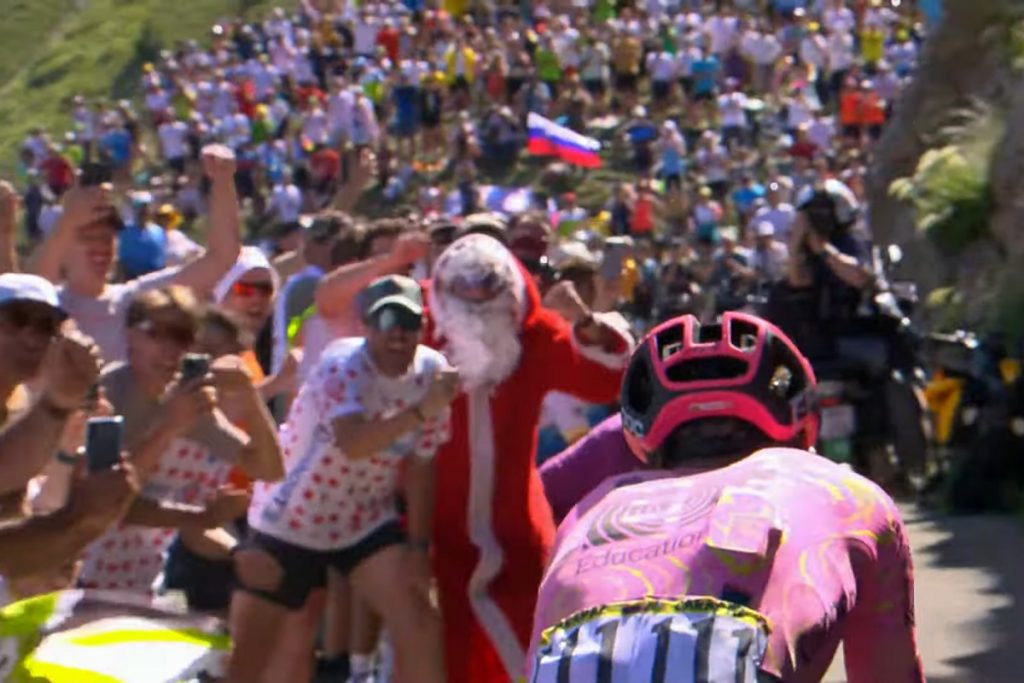
That second stage also sucked a smidge of intrigue out of what was to come later in the week, because the one thing the race needed from a dramatic point of view was a sense that things were still in the balance and this could only really come from Tadej Pogacar showing some sign of vulnerability to Jonas Vingegaard after all of his exertions across the Giro d’Italia and the first 16 stages of this race.
Pogacar dropping both Vingegaard and Remco Evenepoel on a climb was therefore not a very encouraging development. When Evenepoel then dropped Vingegaard, tension for the days ahead only dissipated further – unless you count ‘the battle for second place’ as a central plot strand.
In terms of time, these developments were only worth seconds, but in terms of Pogacar’s seemingly untroubled waltz to victory, they said a lot.
The People’s Champion
Carapaz was a worthy stage-winner though, having tried his luck in the break any number of times already. In fact, apparently unsated, he tried again the next day on a stage when we ended up with an even more worthy winner.
Last year I named Victor Campenaerts The People’s Champion. This was in part for his repeated yet fruitless breakaway attempts, but mostly for his selfless efforts on Stage 18 when the break did finally (just about) stay away.
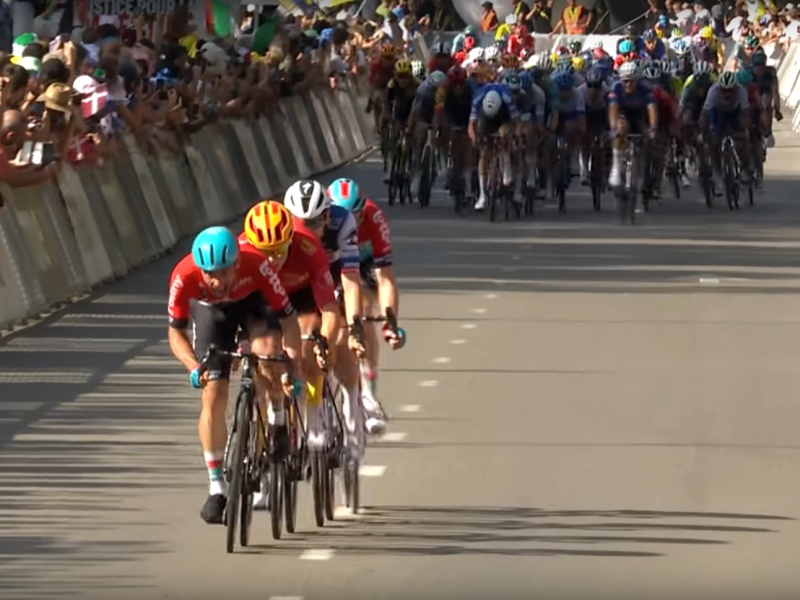
On that occasion (above) the Belgian visibly burnt through every last molecule of energy trying to keep his three breakaway companions ahead of the peloton, sacrificing his own hopes of victory in the process. If his team-mate Pascal Eenkhoorn ultimately failed to finish things off, I suspect that Campenaerts nevertheless took satisfaction that he got his companions home less than a second ahead of the sprinters. (Less than a second!)
If ever a man deserved a Tour de France win, it was Campenaerts and this year he got one after keeping his powder just a touch dryer to outsprint Michal Kwiatkowski and Matteo Vercher at the finish.
It’s possible he hasn’t yet stopped crying.
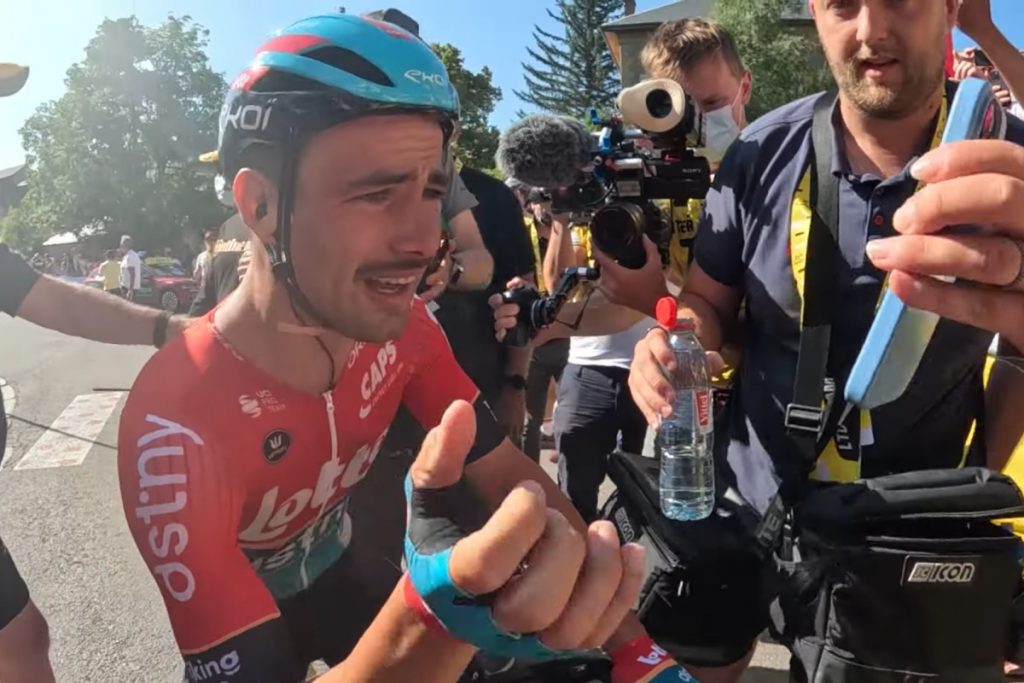
The overall contenders prepare for everything and compete for stage wins again and again. Campenaerts had been targeting just one stage with the chances of delivering victory vanishingly slim.
He spent nine weeks at an altitude camp during which he missed the birth of his child – quite the investment given the likelihood of a return on it. You can see why he might have been feeling a little emotional.
You could argue that riding a little more selfishly worked out for Campenaerts, but given his whole team turned out for the podium ceremony – a unique occurrence – it’s clear that his years of riding selflessly have earned him something too.
Like I say, The People’s Champion.
Nice mountains, Nice time trial
After that, it was time for the big finish: two monster mountain stages, each serving up way over 4,000m of what Lance Armstrong calls “vert” (vertical gain) and then a time trial from Monaco to Nice, over another, slightly smaller mountain.
This run-in looked great on paper (and aesthetically too), but dramatically it ended up hackneyed and overfamiliar.
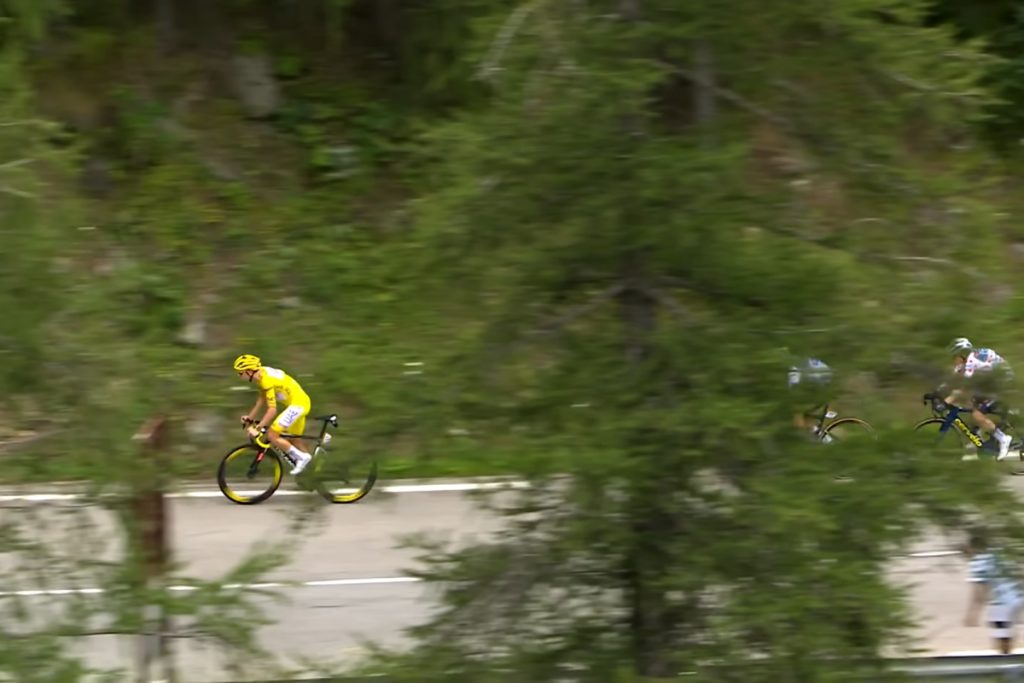
On Stage 19, Pogacar got his team to set a high pace, attacked halfway up the final climb and gained another 1m42s on Vingegaard and Evenepoel.
To my mind the great weakness of cinema’s superhero genre is that the protagonists are superheroes. You know they’re going to win, so it’s hard to care. It’s not Pogacar’s fault this race ended up like that, but after the Giro d’Italia and his other victories in the spring, some sense of frailty wouldn’t have gone amiss.
I personally thought his efforts would catch up with him, but there was nothing remotely close to a slump in form – which feels like a bit of a blow to the fundamental concept of three-week racing, even if he did proclaim himself “super tired” afterwards.
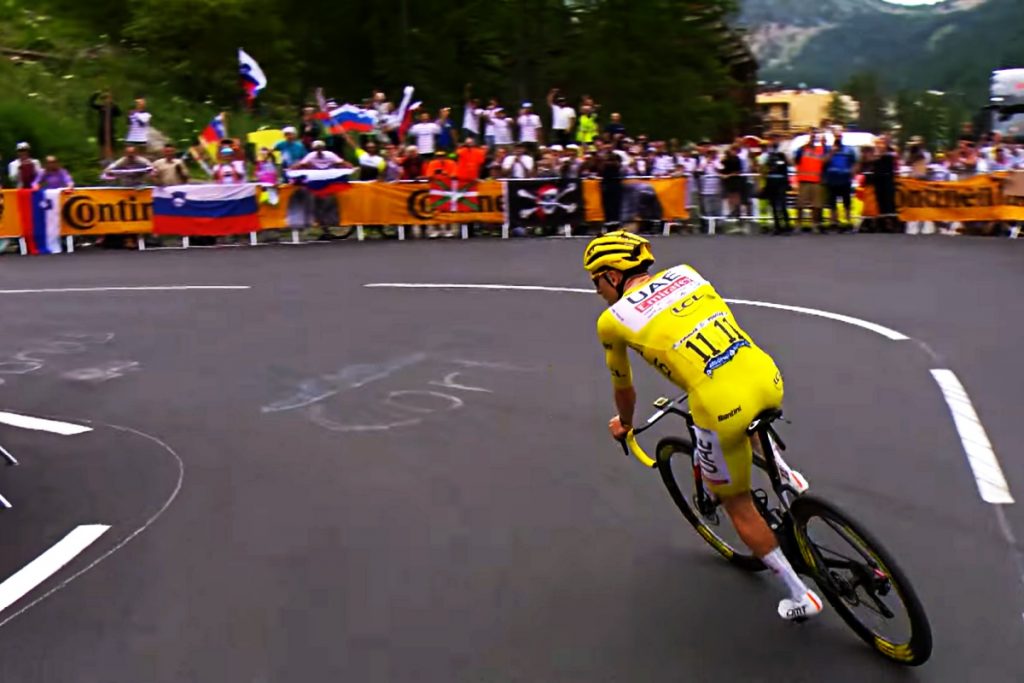
Pogacar seemed to suggest the last couple of kilometres of that Stage 19 effort had been a struggle, but there was little sense of that from the outside. And even if he was tiring, it was pretty clear that everyone else was tiring more. He’d been strongest on Stage 2 and he’d later prove himself the strongest on Stage 21 as well. There was no peak in form. He was the best from start to finish. There’s not much nuance to a victory like that; not much subtlety or intrigue.
The Stage 19 attack left him five minutes ahead of Vingegaard overall – enough of a buffer to survive an implosion that very obviously wasn’t going to come the next day.
On Stage 20 – the final summit finish – Pogacar finished ahead of Vingegaard and Vingegaard finished ahead of Evenepoel.
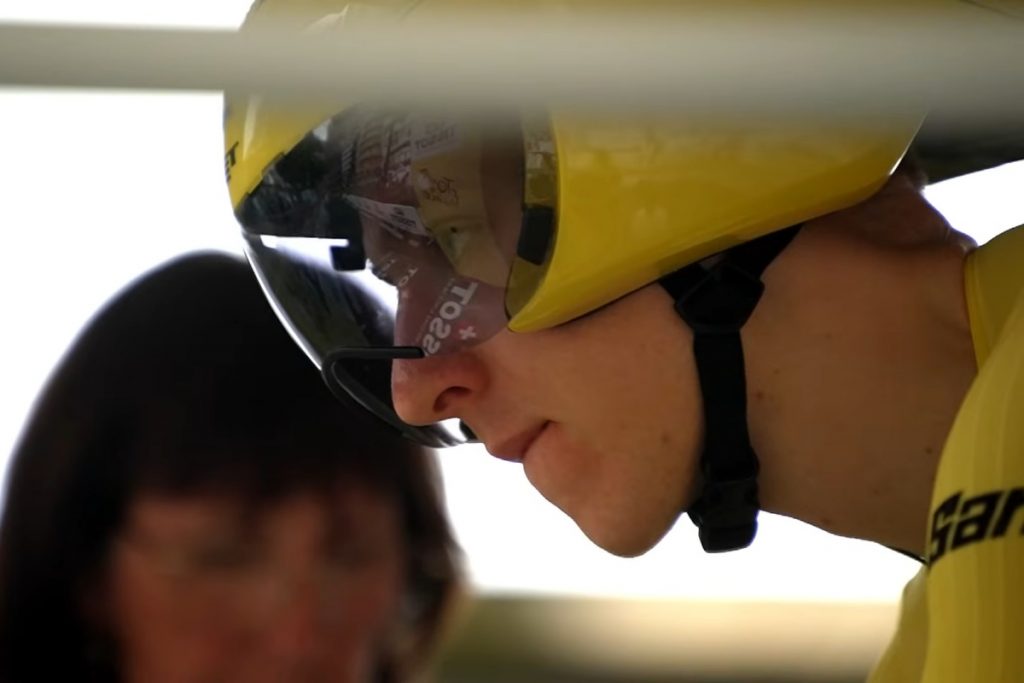
On Stage 21 – the time trial – they finished first, second and third, exactly as the overall result suggested they would. It was Pogacar’s sixth stage win of the race.
Hopefully Vingegaard’s preparation is smoother next year or we could be in for one of those insipid sequels that actually feels like more of a remake.

What’s next?
Next up on the calendar is the Vuelta a Espana from August 17 – but bad news, I’m afraid. This site has unfortunately been pushed down my list of journalistic priorities a little this year, so I’ve been struggling to devote as much time to it as I’d like. Throw in the fact that I’m away for a week of the Vuelta and weekly recaps are alas off the table.
I’ll try to cover it somehow though – perhaps in the form of a preview and just one mega-recap at the end. Sign up for the email to see what happens.
And if you’d like to thank me for my Tour coverage these last few weeks, please do buy me a coffee or a Belgian beer – I love those things.
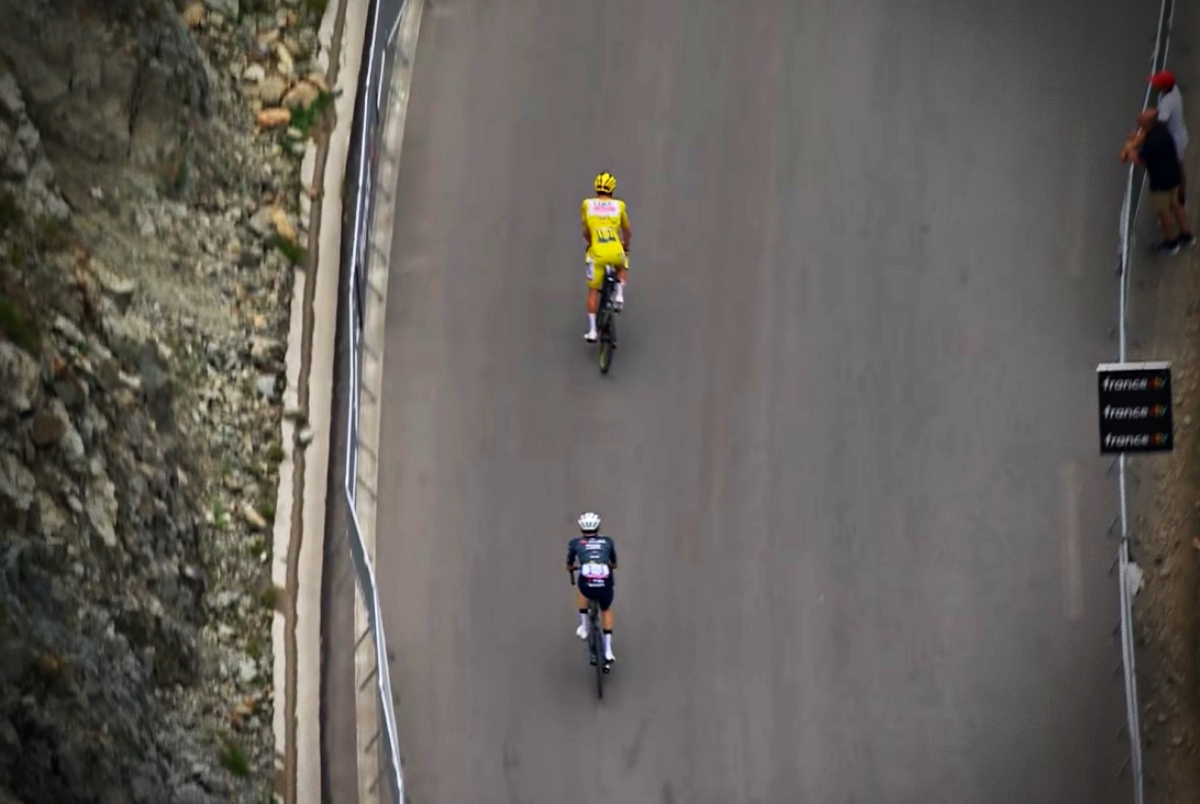
Leave a Reply